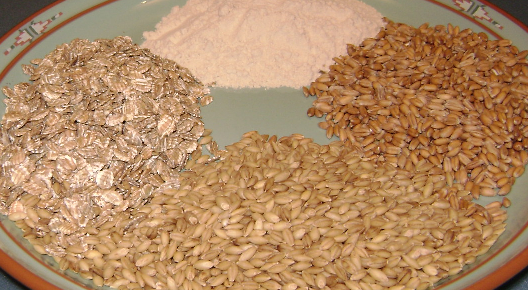Gluten Free Diets: Fad or Fundamental?
Gluten Free Diets: Fad or Fundamental?
Gluten free diets have become popular in the last few years. Endorsements from professional athletes such as quarterback Drew Brees, or tennis pro Novak Djokovic have lead to many debates within the athletic community. Other celebrities such as Elisabeth Hasselbeck, Jenny McCarthy, and Gwyneth Paltrow are avid supporters of a gluten free diet, and have encouraged others to “clean up their diet” as well. Some eat gluten free out of necessity, while others have changed their diet to shed a few pounds, but the question remains… is this a fad? or a could it be a fundamental way to be healthy?

Gluten is a combination of two proteins: glutenin and a grain specific prolamin. Gluten is found within the endosperm of wheat, barley, and rye grains, as well as cross contaminated oats. In baking, the glutenin gives dough the elasticity and allows for leavening. It will also contribute to the “fluffiness” and “chewiness” of baked goods. Gliadin is a specific prolamin found in wheat that is similar to the proteins found in barley (hordein), rye (secalin), and oats (avenin).
In gluten sensitive people, the presence of gliadin, secalin, or hordein, and sometimes avenin can create a wide variety of symptoms. In the small intestines, inflammation is the most common symptom, which in turn impairs digestion, and leads to other digestive symptoms. The immune system sometimes creates antibodies, and can be an indication of further damage to the intestines, and eventually Celiac Disease. In addition to digestive symptoms, many people with gluten sensitivity have reported improvements with symptoms that range from brain fog, weight gain, joint pain, poor sleep, and hormone imbalance.
Dr. M. Hadjivassiliou, in the Department of Neurology at The Royal Hallamshire Hospital in the United Kingdom published a paper entitled, “Gluten Sensitivity is a Neurological Illness,” wherein he describes the array of symptoms that are aggravated the gluten protein found in common breads, pastries, and pastas. Many of the neurological complications that are aggravated by gluten include: ataxia (poor coordination), peripheral neuropathy (nerve symptoms in the arms, hands, legs, and feet), dementia, and myocitis (muscle weakness and wasting).
Growing evidence indicates that gluten sensitivity is much more than a digestive disorder as it was previously thought. Dr. M. N. Marsh wrote in Oxford’s QJM: An International Journal of Medicine that gluten sensitivity is “best defined as a state of heightened immunological responsiveness in genetically susceptible people.”
Clinical practice has demonstrated that a variety of symptoms improve as patients in our office avoid gluten containing foods. Positive diagnostic testing is a great way to screen for gluten sensitivity, but in some cases simply eliminating gluten from the diet is all that is needed. From headaches and weight loss, to neurological conditions and hormonal imbalance, avoiding gluten could be the key to helping you to become healthier. While others may try a gluten free diet as the latest Hollywood trend, for you it may be the fundamental change needed to help you achieve the level of health you deserve. To start shopping for healthy, gluten free options, visit this page to see more on H-E-B’s gluten free items.
